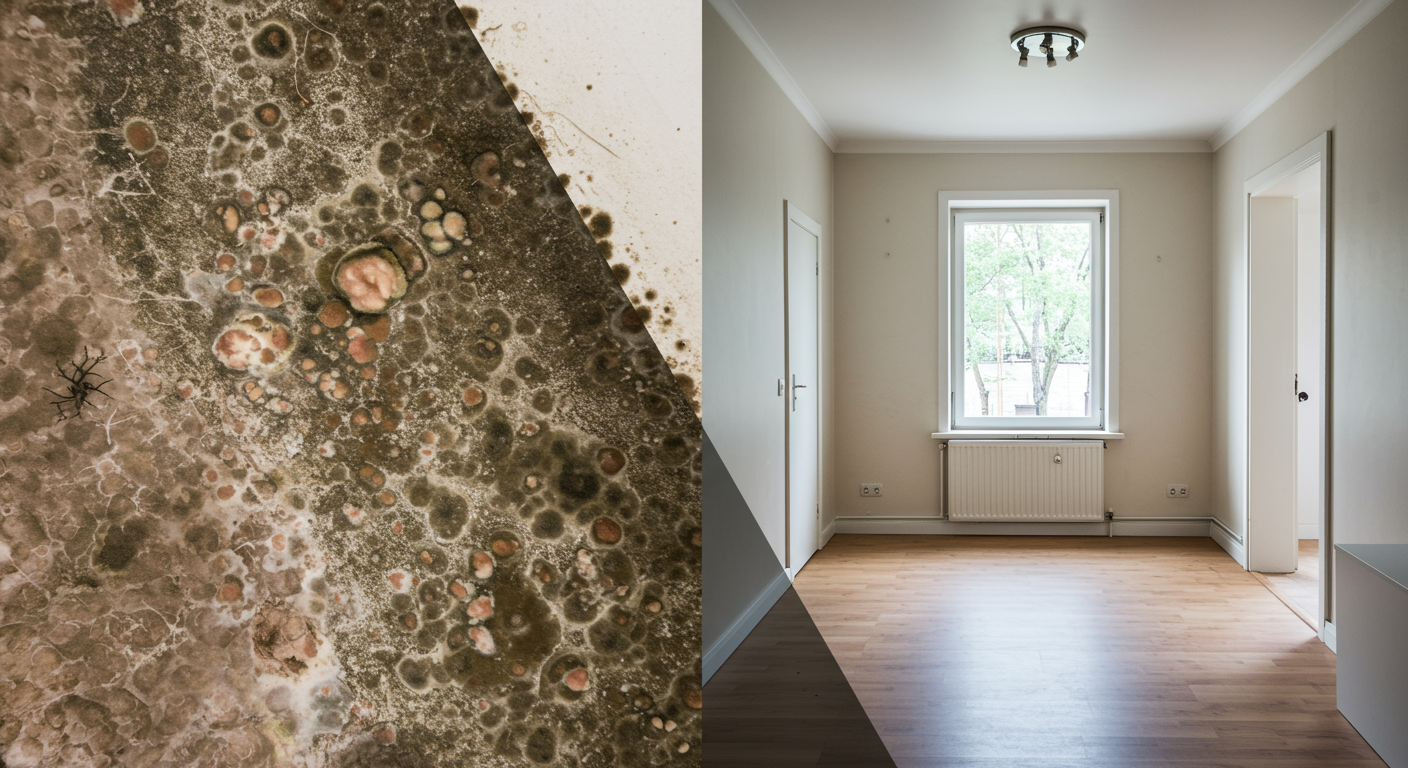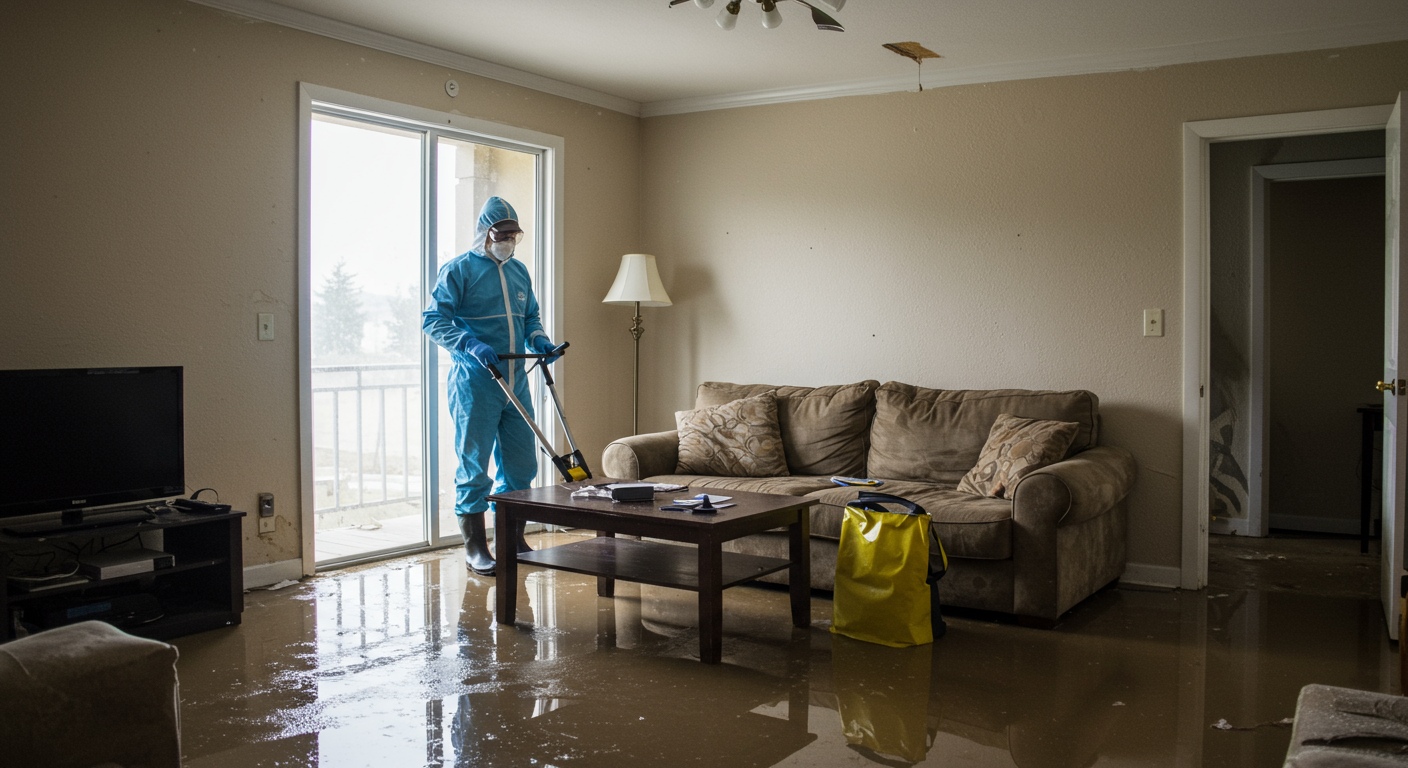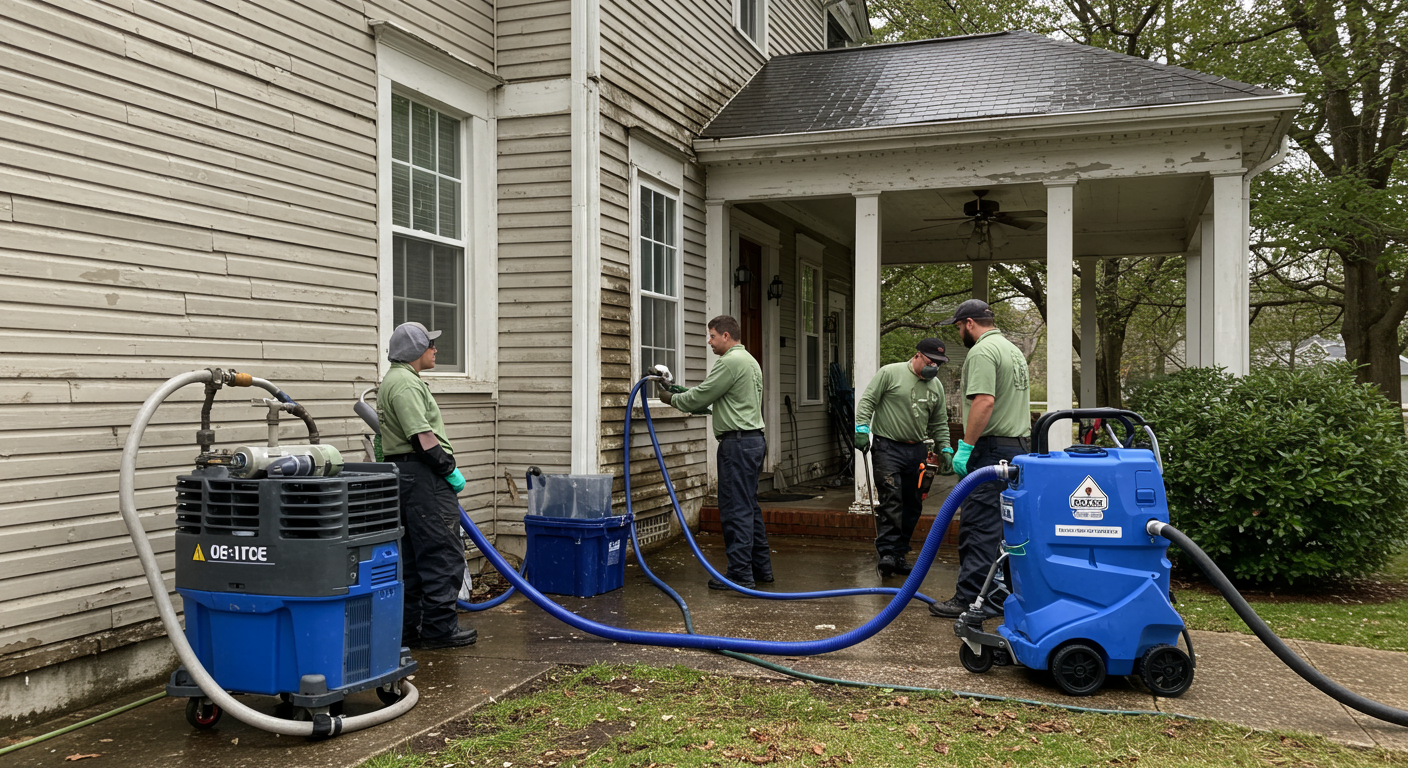Mould is a common problem that can have serious implications for both your home and your health. In Richmond, VA, where humidity levels can be high, understanding how to manage and remediate mould is essential. This guide provides comprehensive information on mould remediation, regulations, and prevention strategies to help you maintain a safe and healthy living environment.
Understanding Mould and Its Health Risks
What is Mould?
Mould is a type of fungus that thrives in damp, humid environments. It can grow on various surfaces, including walls, ceilings, and furniture, and often appears as black, green, or white patches. In Richmond, VA, the humid climate creates ideal conditions for mould growth, especially in poorly ventilated areas like basements and bathrooms. Mould spreads through tiny spores that float in the air, making it easy for it to colonize new areas in your home.
Health Effects of Mould Exposure
Exposure to mould can lead to a range of health issues, particularly for individuals with allergies, asthma, or weakened immune systems. Common symptoms include respiratory problems, skin irritation, and eye discomfort. Prolonged exposure can exacerbate chronic conditions and even lead to severe infections. Understanding these risks underscores the importance of timely mould remediation to protect your family’s health.
Mould Remediation Regulations in Virginia
Overview of Licensure Requirements for Inspectors and Remediators
In Virginia, mould remediation is a regulated process to ensure safety and effectiveness. Professionals involved in mould inspection and remediation must adhere to state licensure requirements. These regulations mandate proper training and certification, ensuring that experts use industry-standard practices to address mould issues. Hiring licensed professionals guarantees that the remediation process is thorough and compliant with state laws.
Key Standards and Practices for Safe Remediation
Effective mould remediation involves several key steps, including identifying the source of moisture, containing the affected area, and safely removing mould-infested materials. Professionals use specialized equipment like HEPA filters and protective gear to minimize exposure and prevent cross-contamination. Adhering to these standards is crucial for ensuring that mould is completely eradicated and does not return.
For expert assistance, consider reaching out to Top Mold Experts in Richmond, VA, who specialize in comprehensive mould testing and remediation services.
Responsibilities of Landlords and Tenants Regarding Mould
Landlord Obligations for Mould Remediation
In Richmond, VA, landlords are legally obligated to provide tenants with a safe and habitable living environment. This includes addressing mould issues promptly. If mould is caused by structural problems or plumbing leaks, it is the landlord’s responsibility to arrange for remediation. Failure to do so can result in legal consequences and potential health risks for tenants.
Tenant Responsibilities in Preventing Mould Growth
Tenants also play a role in preventing mould growth. Simple actions like ventilating bathrooms, using dehumidifiers, and reporting leaks to landlords can make a significant difference. Tenants should also avoid activities that contribute to excess moisture, such as drying clothes indoors without proper ventilation. Open communication between landlords and tenants is key to addressing mould issues effectively.
Effective Mould Prevention Strategies
Tips for Homeowners to Prevent Mould
Preventing mould starts with controlling moisture levels in your home. Here are some practical tips:
- Maintain Humidity Levels: Use dehumidifiers to keep indoor humidity below 60%.
- Fix Leaks Promptly: Address plumbing and roof leaks as soon as they are detected.
- Improve Ventilation: Ensure proper airflow in areas like kitchens, bathrooms, and basements.
- Clean Regularly: Regularly clean and dry areas prone to moisture, such as shower curtains and window sills.
Implementing these strategies can significantly reduce the risk of mould growth in your home.

Resources for Further Guidance and Support
For additional resources, consult reputable organizations like the Virginia Department of Health and the Environmental Protection Agency. These agencies provide valuable information on mould prevention and remediation. You can also explore Expert Household Mold Remediation in Richmond, VA for professional services tailored to your needs.
By following these mould remediation guidelines, you can protect your home and health from the adverse effects of mould. Whether you’re a homeowner, tenant, or landlord in Richmond, VA, staying informed and proactive is the key to maintaining a safe and healthy living environment.


